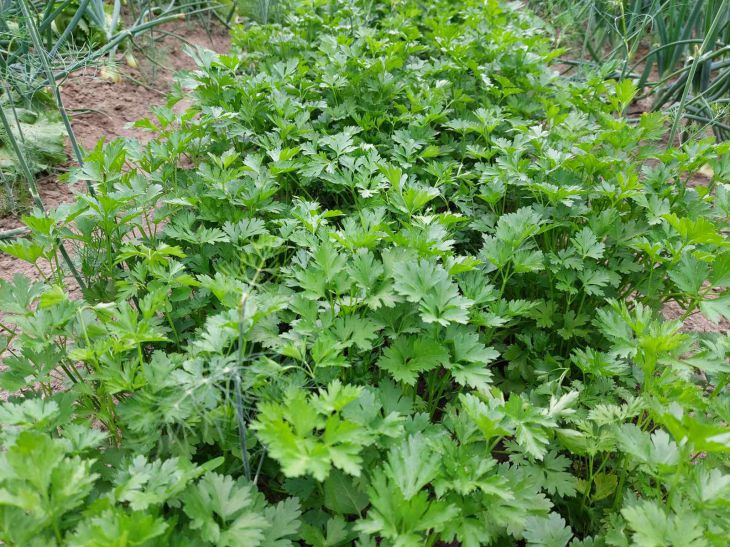Home Remedies for Aphids. Natural Ways to Control Aphids
Aphids are small pests of the bug family. Since they are not picky about their diet, they can be found both on garden plants and those grown at home or on the balcony. Aphids mainly suck the juices from plants, which leads to a significant weakening of the plant, distortion of shoots and a decrease in the quality of the harvest.
The presence of aphids is easy to recognize thanks to the characteristic honeydew, which is nothing more than a secretion left by the pest during the feeding process. Honeydew not only sticks to the surface of leaves or inflorescences, but also provides an ideal environment for the development of dangerous fungal diseases.
As you can see, the appearance of aphids in the garden or on indoor plants causes significant damage, so you should start fighting the voracious pest as early as possible.
If organic breeding is your goal, it is worth trying natural, homemade methods that have been successfully used in plant care for decades.
Important! When deciding to combat a pest with ready-made chemicals, it is necessary to adhere to the recommended withdrawal periods, which should not be shortened under any circumstances.

The period specified by the manufacturer must pass from the application of the chemical to the moment of harvesting and consumption of the sprayed fruits or vegetables. This is determined by the type of chemical used and the type of plant and can be as much as several weeks!
Methods of ecological removal of aphids
Eco-friendly aphid spraying has two key benefits. Firstly, it helps to get rid of the pest without using chemicals. Secondly, it limits the harmful effects of chemicals on both our bodies (especially if we use them on plants whose yields are edible – vegetables, fruit trees and shrubs) and on beneficial insects, which are often natural enemies of aphids.
An effective method against aphids - beneficial insects
One of the allies in the fight against aphids is, for example, the ladybug, for which aphids are a real delicacy, so it is worth inviting it into your garden. How to do this?
To attract the insect, you need to spray the plants with a solution of water and sugar. Another way is to tie pieces of yellow fabric or ribbon on the plants. Both the sweetness of the spray and the color of the material are effective baits for the ladybug, and its presence in the garden is a very effective remedy against aphids.
Plants that repel aphids
This method will work both when growing in a garden and on balconies and terraces.
Well, aphids, in addition to natural enemies such as ladybugs, also have natural repellents in the form of some plant species. In order to effectively reduce the number of aphids or completely eliminate the possibility of the pest appearing, it is worth using coordinated cultivation in the garden, which consists of planting plant species that aphids do not particularly like between vegetables and flower beds. Plants that repel aphids are primarily garlic and onions.
In turn, among herbs, mint and lavender exhibit strong repellent properties. Both species can be planted both in the garden and in pots on the balcony or terrace. The intense aroma emitted by these plants will effectively stop the spread of the pest among our crops.
Plant-based preparations
Preparations against aphids are prepared on the basis of pest-repelling plants. These are mainly decoctions and plant extracts that are used as sprays. What is important is that they cannot be overdosed, so you do not have to monitor the exact proportions and amount of spraying.
The most recommended ones are the following.
Garlic extract
Finely chop a few cloves of garlic, then put them in a jar and fill with water. In order for the extract to be sufficiently intense, you need to wait a day, leaving the vessel in a warm place. After this time, the preparation is ready for use. It is enough to pour the resulting extract into the washing machine, diluting it with water in a ratio of 1:1. The remaining amount can be stored in a cool place for up to 30 days.
Onion decoction
Pour about 10-12 liters of water over a kilogram of onions and then boil for half an hour. Pour the cooled and strained broth into a spray bottle and apply to plants attacked by aphids.
Nettle extract
To prepare a natural preparation, you will need about 1 kg of nettle and 10 liters of water (rain water is recommended). Water the nettle, and after 24 hours you can start spraying the plants. It is interesting that nettle extract acts not only on aphids, but is also an effective weapon in the fight against fungal diseases, such as gray mold.
Vinegar and water solution for aphids
A mixture of vinegar and water is a very effective method of controlling aphids, and it is also extremely easy to prepare.
The solution should have the appropriate concentration, and the recommended ratio is 1:10, i.e. 100 ml of vinegar and 1 liter of water. In order to increase the effectiveness of the preparation, you can add a small amount of dishwashing liquid to it. Spray the infected plants generously with the solution prepared in this way.
Milk and grey soap against aphids
In case of milk, fresh cow's milk is recommended. A mixture of milk and water in a 1:1 ratio is ready for consumption immediately after preparation.
To prepare a solution of gray soap, dissolve about 20 g of soap in 1 liter of warm water (you can also use liquid soap, available in garden stores). The preparation must be allowed to cool.
In conclusion, home remedies for aphids are methods that have been used by gardeners for decades.
They are a cheaper and more environmentally friendly alternative to chemicals, so before turning to specialized plant protection products, test natural methods that may be quite effective.
